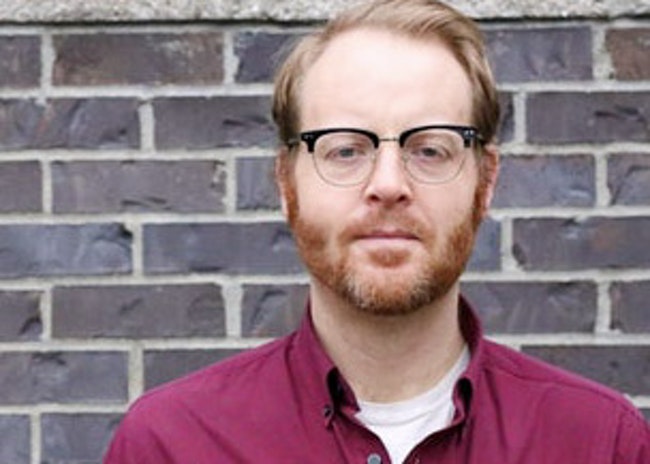
Jake Thomas, reporter at Salem Reporter.
After spending nearly half a decade working as a reporter in Washington state, starting a job in a new city in Oregon was like having the pieces of a jig-saw puzzle dumped in my lap.
Although I’ve only been at the Salem Reporter for not even three months, I’ve made progress in putting this puzzle together. I’ll be putting together even more of this puzzle next year when records requests come in, I develop more sources and the Legislature meets for what’s likely to be a packed session.
In the meantime, here are some of the pieces I’ve fit together.
Since starting my position covering state government with a focus on criminal justice, I’ve been closely reading the news for overlooked stories. Earlier this month, I read about how a judge overturned the manslaughter conviction of Nicholas McGuffin.
McGuffin’s conviction was overturned after a group called the Forensic Justice Project discovered that another man’s DNA was on the victim’s shoe. The evidence had been buried in the data used in a DNA analysis and proved key to McGuffin’s release from prison.
[Keep local news alive in Salem – subscribe today]
Around the same time, a source mentioned to me that the Forensic Justice Project had recently won a contract to train public defense attorneys in Oregon on the use of forensic evidence. At that point, I had questions about who this group was and if there was a bigger problem in the criminal justice system they were trying to address.
The resulting story was about a small nonprofit taking on an often overlooked problem: the misapplication of forensic evidence in court. Like many others who’ve watched crime dramas on TV, I figured that forensic and other science-based evidence was pretty much indisputable.
The story revealed that these methods are far from flawless. Innocent people can end up in prison if lawyers (particularly defense lawyers) lack the scientific literacy to question forensic evidence. It’ll be interesting to see what the Forensic Justice Project gets into in 2020.
 David Belluno (Booking photo).
David Belluno (Booking photo).
Judge drops charges against man arrested last year for alleged attack in Minto-Brown Island Park
When I got the tip, it didn’t seem believable.
Last year, David Belluno was arrested over allegations he attempted to kidnap and sexually assault a woman at knifepoint in Salem’s Minto-Brown Island Park. The victim had fought off her attacker and called police, who arrested Belluno.
Belluno’s charges were dropped recently after he was found incompetent to stand trial. But instead of being sent to the Oregon State Hospital for treatment, Belluno was allowed to walk free.
I called the prosecutor and defense attorney working on the case, who confirmed that the charges had been dropped. I also dug into the court files and started reading the relevant state law.
What emerged was a story of conflicting expert opinion, exacting legal standards and a parsed judge’s order.
New courthouse rule aims to stop Immigration and Customs Enforcement arrests
Of this year’s more memorable stories was my first for the Salem Reporter and involved the hot-button topics of immigration and the Trump administration.
While making the rounds with sources, I heard that the Oregon Judicial Department was considering a rule aimed at stopping federal Immigration and Customs Enforcement agents from making arrests at state courthouses. After Trump took office, ICE started going to county courthouses to arrest people suspected of being in the country illegally.
The arrests, part of the Trump administration’s hardline approach to immigration, raised concern among civil liberties groups and attorneys that immigrant communities would become reluctant to participate in state court proceedings.
Although an advisory committee supported the rule, its members expressed concerns about how it would play out. Since the rule was passed, the Trump administration and ICE responded with sharply worded statements that suggest that there could be future conflict between the state and federal governments. I suspect I’ll be writing about this story next year.
 Ellen Rosenblum, Oregon attorney general
Ellen Rosenblum, Oregon attorney general
Why a new Oregon law seeks to improve how hate crimes are reported
Before starting at the Salem Reporter, I read about how the Legislature passed an update to its hate crimes law. I figured lawmakers made some adjustments to how hate crimes are prosecuted and that was the end of the story. But I soon discovered just how ambitious the new law is.
The new law overhauls how hate crimes are reported in the state and advocates are hopeful it will serve as a model for the rest of the country. Currently, the way hate crimes are reported differs broadly across the state. As a result, large swaths of Oregon reported no hate crimes, while others appear to be hotbeds of prejudice.
Proponents of the new law say collecting better data will provide a clearer picture of hate in Oregon and help law enforcement and advocacy groups develop a targeted response.
Court finds that police coerced murder confession
Rulings from the Supreme Court and Court of Appeals can be a steady source of interesting stories on the criminal justice beat. One from this year stands out.
The case involved Eloy Vasquez-Santiago, a 37-year-old illiterate migrant worker with an IQ of 53 suspected of murdering Maria Bolanos-Rivera, a woman he worked with.
After Bolanos-Rivera went missing, Vasquez-Santiago abruptly left Woodburn with members of his family. He eventually reached Mexico. But he returned to the U.S. and confessed to the crime after police told him members of his family, including his infant son, wouldn’t be released from custody unless he confessed.
The appeals court sent the case back to a lower court. In its ruling, the court noted that at the center of the case is a parent’s love for their child. The court found that the confession was coerced and sent the case back to a lower court.
Contact reporter Jake Thomas at 503-575-1251 or [email protected] or @jakethomas2009.









